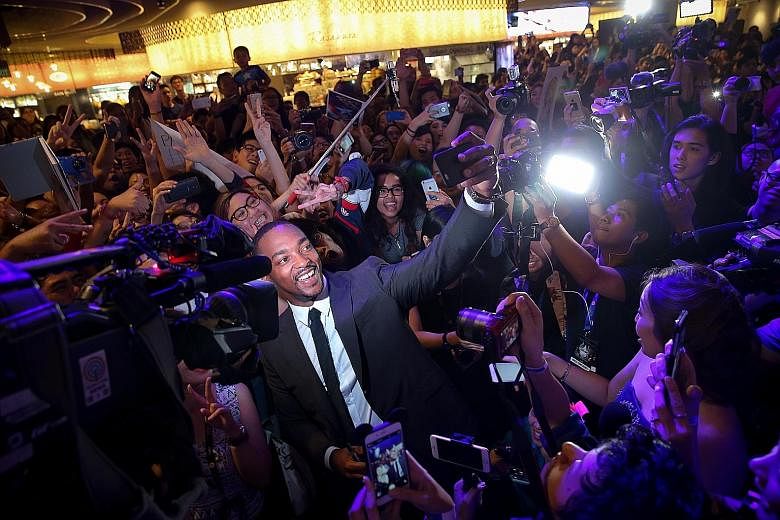Hell hath no fury like a fan scorned.
Last month, Marvel comics and movie fans in Singapore criticised events organiser Reed Exhibitions for being "exploitative" by charging them high fees for better access to the stars of Captain America: Civil War at a blue carpet event that was otherwise free for the public to attend.
Ticket packages, which started at $688 each, came with a blue carpet ticket that put the ticketholder closer to the main stage, but with no guarantee of a selfie or handshake with the cast.
Many fans felt that Reed was greedy - even more so when they discovered that the other products bundled with these packages, including a T-shirt and a figurine, were being sold separately by Reed for only $68.
Days after the blue carpet event ended, peeved fans were still ranting on social media, with several calling for boycotts of Reed's future events, such as the Singapore Toy, Game & Comic Convention to be held in September.
The incident has marred the reputation of Reed, which will have to work extra hard to redeem itself in the eyes of fans if it wants to be successful in the entertainment world for the long term.
In the age of social media, fan loyalty counts for a lot; unless companies recognise that, they will lose out.
It is not just that fans - by voting with their wallets - wield much power over the success of major pop culture franchises. It is that the huge fanbase they form often seems to be the only reason movie studios need to greenlight multi- million-dollar blockbusters.
Just look at the recent example of Batman V Superman: Dawn Of Justice. The superhero movie starring Henry Cavill and Ben Affleck was widely and spectacularly panned by critics, but it was still lapped up by many DC Comics fans who could not care less about what the "official guys" thought. And that love from the fans has translated to huge box-office takings of more than US$860 million (S$1.18 billion) globally.
Fans will want to tune in and be a part of the conversation, no matter what others say. They take to forums to analyse at length even the tiniest details of a film or TV episode, and they are the ones who write fan fiction and paint fan art.
Fans are constantly fuelling interest in pop culture products, all on their own. Not to mention the fact that they also happily splash out thousands of dollars on figurines of their favourite superheroes.
In the case of the Captain America blue carpet event, fans were upset not because they were stingy, but because they felt cheated. They might be willing to fork out $500 for a toy that they would never remove from its box, but they deemed the $688 unworthy and exploitative (remember, the blue carpet was a free event).
On the other hand, if companies actively promote and partner fan culture and reciprocate the love of fans, they will be greatly compensated.
Comic-Con International in San Diego and New York Comic Con - annual United States conventions that celebrate pop culture products - do the lovefest with fans well.
More than just a typical trade show where attendees look at product displays, the events have become parties for fans, who are always the first to get updates about their favourite programmes. Fans also get to meet A-list celebrities and influential entertainment industry honchos at panel discussions, who share special behind-the-scenes gossip that they have not released even to mainstream media outlets.
It is no surprise that both conventions have grown year after year, with San Diego's event drawing more than 130,000 attendees last year, and New York's with 167,000 people.
The company that is perhaps unrivalled when it comes to knowing how to keep its fans happy is Lucasfilm, the studio behind the hit Star Wars movies.
Other than personally replying fan mail (mostly to young children) - led by a full-time head of fan relations - Lucasfilm has given many geeky fans the dream gigs of their lifetime by hiring them to work on their films. A pair of British droid builders, for example, worked on the set of the recent The Force Awakens movie after their work was spotted by Lucasfilm president Kathleen Kennedy.
Fans are also given exclusive information at the annual Star Wars Celebration that Lucasfilm organises, a four-day convention for all things Star Wars-related.
And how do fans respond? By taking their fandom to new heights, buying all sorts of Star Wars products and promoting the franchise through fan-organised events.
Just last week, fans all over the world, including in Singapore, celebrated May The Fourth, a Star Wars holiday of sorts where fans dress up in character and talk Star Wars.
Now that is a win-win situation for all.
•Follow Yip Wai Yee on Twitter @STyipwaiyee


